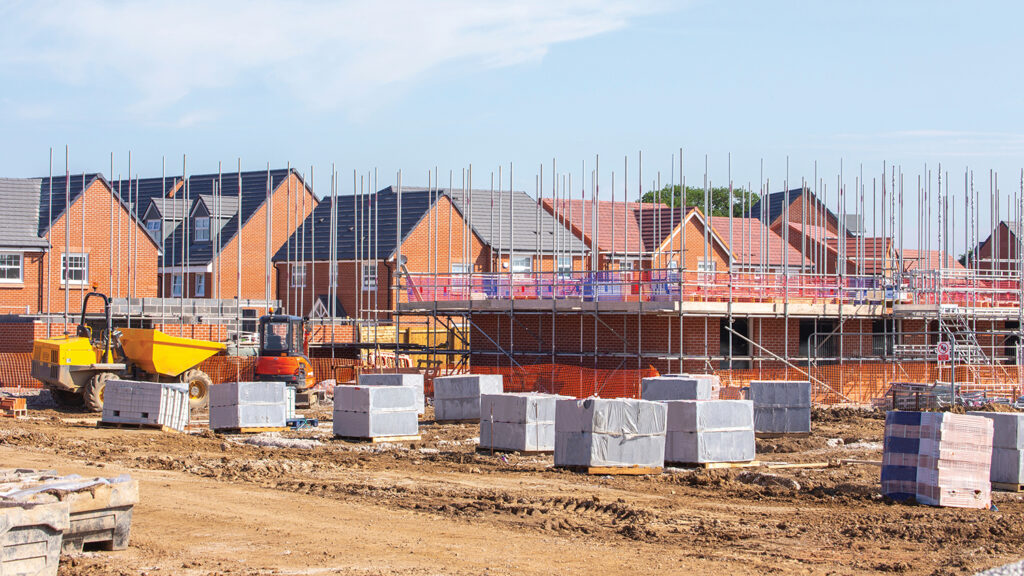FDI can play a key role in solving UK’s housing crisis

Structural and planning challenges have dogged efforts to build more houses in the country. It means opportunities remain for international operators willing to invest and bring their expertise. Courtney Fingar reports.
Many cities across the UK are facing a housing crisis, characterised by high demand, soaring prices and insufficient supply of affordable homes. The issue, which is sure to loom large in the general election expected this year, presents a significant and complex challenge that has been growing for several decades and has proved difficult to tackle.
It impacts a wide range of people, from low-income families to young professionals. It also holds back cities from achieving their economic and investment potential – placing it high on the agenda for businesses and inward-investment agencies, as well as political leaders.
Prime minister Rishi Sunak has pledged to build hundreds of thousands of new homes in an attempt to address the shortages. Earlier this year the government announced new rules it hopes will lead to tens of thousands of new homes will being built in England’s 20 biggest urban areas every year. Under the rules, city councils failing to meet housing targets will be told they can only refuse planning permission on brownfield land in exceptional circumstances.
Also, full planning permission will not be needed to convert shops, offices and commercial buildings into homes, in an effort to make use of existing buildings.
Meanwhile, opposition leader Keir Starmer has vowed to “change the face of housing” if the Labour party wins power. “Make no mistake, we need to reform housing in this country,” he said in a February 2024 speech.
There are various dimensions to, and causes of, the UK’s housing shortages, making any potential solutions multi-faceted.
Supply and demand mismatch
The most fundamental issue is the mismatch between supply and demand. The UK has experienced strong population growth, including an increase in the number of single-person households. However, housing construction has not kept pace with this growth due to various factors, including regulatory constraints, limited land availability and the cyclical nature of the housing market.
Planning systems in the UK can also be complex and restrictive, often leading to significant delays in housing development. The emphasis on preserving green belts and other urban planning regulations, while environmentally and socially beneficial, can also limit the availability of land for
new housing.
High land and construction costs also restrict the ability to build more homes. And the economic attractiveness of real estate investment has led to higher property prices, making housing less affordable for the average buyer.
A decline in the stock of social housing has exacerbated the situation. Over the past few decades, there has been a significant reduction in the construction of social housing. Policies such as the Right to Buy scheme have diminished the stock of affordable public sector homes without sufficient replacement, adding pressure to the housing market.
Amid these challenges, international investors can help to alleviate the pressure on supply and facilitate the development of sustainable, affordable housing.
By investing in residential projects, international capital can boost local housing stock and also promote regeneration in run-down areas, contributing to broader economic revitalisation.
One of the critical aspects of international investment in UK housing is addressing affordability. Investors can engage in build-to-rent projects which offer more stable rental prices, or participate in government schemes aimed at providing affordable housing.
Innovative technology and efficient management
Beyond financial resources, international investors often bring innovative building technologies and efficient management practices. These can include modern construction methods such as modular housing, which significantly reduces building time and construction costs, making housing more affordable.
Additionally, international expertise in property management can improve the sustainability and livability of residential developments.
Creating inclusive communities rather than merely constructing buildings is an increasing focus for planners as well as investors and developers. This involves planning for mixed-use developments that offer accessible services such as shops, parks, and schools. Investors can contribute to the social infrastructure that supports diverse communities, making cities more attractive to current and future residents.
By aligning investment strategies with national and local housing policies focusing on affordability, international investors can help mitigate one of the most pressing issues facing urban dwellers. The stakes are high, but the opportunities are large.
